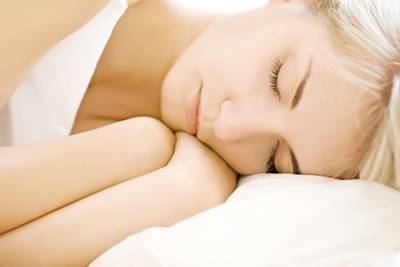As skin care science becomes more advanced and sophisticated, products like primers and moisturizers are promising greater things like skin rejuvenation and anti-ageing. And unfortunately for most of us, most of these amazing products can cost as much as hundreds of dollars per jar—money that some simply cannot afford to slather on our faces.
For those who are looking for most cost-effective alternatives, all you really need for better-looking skin is a comfy bed and some old-fashioned sleep hygiene.
What scientists say about sleep

There are already numerous studies which prove the crucial role that sleep plays in your state of health. Aside from giving the brain a chance to process data gathered throughout the day, sleep is also when our body cells repair themselves.
Every minute, our cells are exposed to toxins and other insults. In fact, the mere act of respiration causes us to age. Luckily, our bodies create protein molecules that can fix most of the damage that occurs on a microscopic level. And this happens at night, when our body goes into downtime.
So we are already aware (more or less) that sleep is important. In fact, lack of sleep has been clinically linked to depression, anxiety, weight gain and impaired focus and responsiveness. But did you know that sleep can also affect the way your skin looks, not just in the usual dark-circle-under –eyes thing but in a more profound way?
How a night-out tires the skin—literally

In addition, you are depriving your skin from its nightly collagen boost. Collagen is responsible for plumping up your skin so that it looks supple and less dried-out. If you look at most high-end moisturizers, collagen is often listed as one of the active ingredients. Of course, smearing collagen in your face is good but considering the fact that you produce it when you sleep, you could more effectively get your collagen fix by spending enough time in the sack.
Just recently, some scientific journals published articles about how the body releases growth hormones during the last hour of sleep. Growth hormone, aside from stimulating growth spurts in adolescents and children, is important because it stimulates the production of new and healthy cells. However, if you wake up prematurely (before the natural sleep cycle ends), that means you’re not getting any growth hormone benefits. Regularly waking up to your alarm clock instead of following your natural circadian rhythm deprives you of the hormone surge. Ever noticed how your skin looks much better after sleeping in on the weekends?
Committing to Sleep Hygiene
If you can invest money and time to following a multi-step skin care regime, then you might as well commit to good sleep hygiene. Make a deliberate effort to sleep early enough so that you can naturally wake up early instead of having to be jolted out of your beauty sleep by the alarm clock every day. Try it, and in a few weeks’ time, you should be seeing the difference in your skin.
Chrystal Ventura is a writer for MattressNextDay. Given the beneficial effects of quality sleep on her own skin, she now considers her comfy superking-sized mattress a crucial tool in her skin care arsenal.
[ad#300×250 Foot]